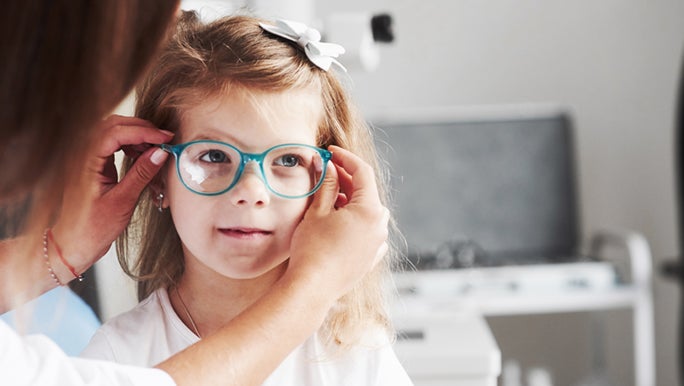You might be sick of carrying around both your glasses and your prescription sunnies. Or maybe, on the gym treadmill, you’d actually like to see the TV instead of fog.
Either way, there often comes a point where you decide you’ve had enough, and you’re getting contacts. But things get busy, and you never progress past Googling the pros and cons of eye contacts.
To save you time, we’ve done the research and created a helpful guide of things to consider when thinking about whether glasses or contacts are better for your eyes.
IMPORTANT: this is just a general guide. If you experience any recurring or worsening eye or vision problems, it’s important to talk to an optometrist.
Why you might need to buy prescription lenses in the first place
Many people who need prescription lenses are affected by ‘refractive errors’. This is the technical term for light not bending or focusing properly onto your retina, causing blurred vision.
The four most common types of refractive errors are:
Short-sightedness (myopia)
Being short-sighted means you can’t see things in the distance properly, but you can see closer objects clearly. It may be caused by having long eyeballs (yes, that’s a thing) or a steeply curved cornea (the front surface of your eye).
Long-sightedness (hyperopia)
Long-sighted people have more difficulty seeing closer objects clearly. You can also be long-sighted and see clearly, but get headaches and tired eyes after focused computer work or reading.
Astigmatism
Another common cause of blurry vision, irrespective of the distance, is astigmatism. This happens when your cornea is irregularly curved or curves too much in one direction, focusing light unevenly. It’s like looking through a camera while it’s trying to focus.
Age-related long-sightedness (presbyopia)
The lenses in our eyes get more inflexible as we age. This can cause a form of long-sightedness called presbyopia, where it gets progressively harder to focus on short-range objects (like the menu at that new restaurant you’ve been wanting to try).
Take comfort in the fact that presbyopia happens to all of us – it’s a normal part of getting older.

Many people who need prescription lenses are affected by ‘refractive errors’. This is the technical term for light not bending or focusing properly onto your retina, causing blurred vision.
Contacts and glasses work to correct the vision problems above by bending incoming light so that it focuses directly on your retina. While they both work in pretty much the same way, your individual situation determines whether glasses or contacts are better for your eyes.
When contact lenses may not be as good as glasses
While it would be nice not to wear glasses during your next workout, they do have some pros for your eye health that are worth considering:
- Eye lubrication: glasses don’t restrict the amount of oxygen reaching your eyes. Dry eye syndrome can get worse for some people who wear contacts.
- Irritability: wearing contacts can sometimes tempt you to touch your eyes, which can irritate them or cause eye infections.
- Convenience: unless you wear disposable daily contacts, you’ll need to clean, disinfect and store your contacts correctly. Otherwise, you risk developing potentially serious eye infections.
- Fewer complications: there’s less chance of developing complications like allergies and scratched corneas from wearing glasses.
- Protection: if it’s windy or dusty, glasses will help to protect your eyes better than contacts.
Another bonus of glasses is that they tend to be cheaper over time than contacts. However, the cost depends on whether you have health insurance, or want designer frames or progressive lenses (the multifocal ones without bifocal lines running across them).

While contacts and glasses both work in pretty much the same way, your individual situation determines whether glasses or contacts are better for your eyes.
When wearing contact lenses may be better than glasses
Contacts may be better than glasses when you want freedom from:
- frames covering your face: contacts can give you a more natural look
- inability to move freely: contacts move with you when you’re active, and you don’t need to worry about them falling off
In terms of eye health, wearing contact lenses may also be better than glasses when you want:
- Sharper peripheral vision with less distortion: by sitting just off your eyes, glasses can distort peripheral vision. Contacts actually move with your eyes.
- More comfort: frames pressing against your nose and behind your ears can cause discomfort and headaches.
- Clearer sight during the day: A technique called overnight orthokeratology or ortho-k uses specially fitted contact lenses to temporarily reshape the front surface of your eye while you sleep.

Deciding between glasses or contacts mostly comes down to personal preferences and what works best for your lifestyle.
In the end, deciding on glasses or contacts mostly comes down to personal preferences and what works best for your lifestyle.
The information in this article should help you to decide, but again, keep in mind that it’s general, and every person has their own unique needs. We recommend talking to your optometrist next time you get your eyes tested as part of your annual health checks
Reviewed by the healthylife Advisory Board June 2021



